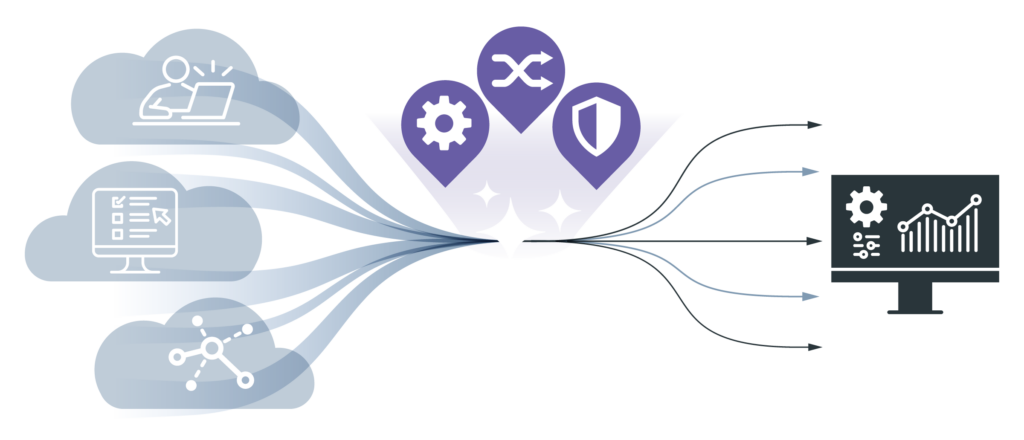
Why Replicating Personal And Sensitive Data Into Your Warehouse Puts Your Business At Risk?
Storing personal or sensitive data in the staging layer of your data warehouse or other applications can be problematic under GDPR compliance, even with limited access and subsequent anonymization, due to several reasons related to data protection principles outlined in the GDPR:
01
Purpose Limitation and Data Minimization
Under GDPR, the data collected and stored must be strictly necessary for the purpose it is intended to serve. Staging layers are often used temporarily to process data before it moves to other parts of the system. Storing sensitive data in this intermediate stage, even if temporarily, may exceed what is necessary, especially if the data is not immediately anonymized upon entry.
02
Storage Limitation and Data Retention
GDPR emphasizes that personal data should be kept in a form that permits identification of data subjects for no longer than necessary. Staging areas are typically used as temporary holding areas, but data can often reside there longer than needed, increasing the risk of unauthorized access or misuse. Retaining sensitive data unnecessarily, even if access is restricted, may violate GDPR’s data retention principles.
03
Data Security and Risk of Exposure
Despite access controls, sensitive data in the staging layer is at a higher risk of exposure due to factors like system misconfigurations, temporary files, logs, or backups that might inadvertently store or expose the data. Even anonymization that occurs after this point does not mitigate the initial risk of exposure.
04
Failure to Anonymize Immediately
GDPR requires that personal data is either pseudonymized or anonymized when it is not needed in its identifiable form. Even though you anonymize the data before using it, storing it in its raw, identifiable form in the staging layer constitutes processing of personal data. The initial presence of identifiable data, even if briefly, poses compliance risks.
05
Data Protection by Design and by Default
GDPR mandates that data protection should be built into the design of processing activities (Article 25). This means that your systems should be architected to minimize the handling of personal data at every stage. Storing sensitive data in staging, even with access restrictions, could be seen as a failure to adequately protect personal data by design, since this practice does not fully minimize data exposure risks.
06
ccountability and Auditability
GDPR requires data controllers to demonstrate compliance with data protection principles, which includes proving that data was handled appropriately at all stages. Staging areas are often not designed with robust audit trails in mind, making it difficult to demonstrate compliance during data handling in these layers, especially when sensitive data is involved.
07
Risk of Non-Compliance During Data Breaches
In the event of a data breach, sensitive data stored in staging layers could be exposed, even if access is restricted. The GDPR imposes strict obligations on organizations to report breaches involving personal data. The fact that data was stored in a non-production area could lead to scrutiny from regulators, resulting in potential fines and reputational damage.
Conclusion
To ensure GDPR compliance, sensitive data should ideally be anonymized at the point of collection or as soon as it enters your data systems, including staging layers. By keeping raw sensitive data even temporarily, you increase the risk of exposure and potentially violate GDPR principles related to data protection, minimization, and security, regardless of access limitations and post-processing anonymization efforts.
